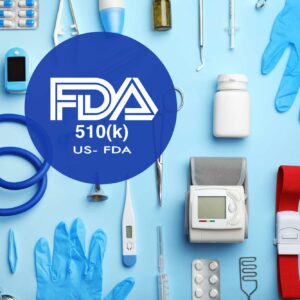Prepping for a MoCRA and FDA Cosmetics Inspection
In a recent News & Insights publication, we addressed FDA’s significant inspection increase, including top citations for each product category, and what to expect and how to prepare for an FDA routine surveillance inspection. With the implementation of the Modernization of Cosmetics Regulations Act of 2022 (MoCRA) mandating the establishment of current Good Manufacturing Practice (cGMP) compliance for cosmetic facilities, and with cosmetic facility registration and listing around the corner, our focus here will be on how companies should prep and primp for FDA cosmetic inspections for lasting glow.
As described in our prior posts here and here, MoCRA provides FDA new inspection authorities and related requirements for the Responsible Person (RP). As with other FDA-regulated categories, FDA’s inspection philosophy remains the same for cosmetics: to confirm compliance with cGMP requirements, to ensure product quality, and to mitigate issues that would trigger public health risk or patient harm. To this end, FDA has the ability to conduct inspections at reasonable times and within reasonable limits and in a reasonable manner and without prior notice to assure compliance with applicable laws and regulations, to determine whether cosmetics are safe, not adulterated, and properly labeled and to identify possible health risks and other violations. This includes FDA’s ability to inspect cosmetic factories, warehouses, establishments, and all pertinent equipment, finished and unfinished materials, containers, and labeling therein.
In determining how an inspection of a cosmetic establishment is warranted, FDA considers several factors including the type of products, the significance of consumer or trade complaints received, the company’s compliance history, FDA surveillance and compliance initiatives, and agency resources. The FDA investigator may review the use of prohibited ingredients, improper use of restricted ingredients, noncompliance with requirements related to color additives, microbial contamination, deficiencies in labeling and packaging, the suitability and maintenance of equipment, buildings and facilities, handling of raw materials, production procedures, laboratory and other quality controls, dealing with out of specification results, recalls, warehousing and storage of raw materials in addition to in-process and finished cosmetics, internal audits and complaint files.
MoCRA also now adds requirements for developing processes to receive and report adverse events. Under the regulations, RPs which include manufacturers, packers or distributors of a cosmetic product, whose names appear on the product label, must have procedures in place to allow receipt of adverse event reports from consumers, and submission of serious adverse event reports to FDA within 15 business days after receiving the report. RPs are also required to supplement such reports within 15 days if at any time during the following year, the RP learns of new and material information related to the adverse event. RPs must maintain records of adverse events for at least 6 years (or 3 years for small businesses). MoCRA now requires that the RP must make the adverse event record available to FDA for inspection. Further, if FDA has reasonable grounds to believe a fragrance or flavor ingredient contributed to a serious adverse event subject to reporting requirements, FDA may request a list of such ingredients or categories of ingredients in writing. The RP must provide the written ingredient list within 30 days of FDA’s request.
Additionally, the RP is required to maintain records of adequate safety substantiation of cosmetic products. Cosmetic products that do not have adequate safety substantiation will be considered adulterated. Importantly, the RP must provide records access to FDA if the FDA reasonably believes that a product or its ingredients are adulterated and present a thread of serious adverse health consequences. Developing and/or ensuring procedures are in place for adverse events, substantiation and the general GMP procedures described above, are key.
While cosmetic GMPs are currently voluntary, MoCRA requires the FDA to establish a proposed rule by December 29, 2024 and final regulations by December 29, 2025. FDA held a workshop June 1, 2023 where industry questioned whether small business exemptions or modified GMP requirements were an advisable best practice, and called for uniformity among all manufacturers. We will continue to monitor FDA’s guidance on small business exemptions and flexibility as the final rule and additional guidance issues.
In the meantime, FDA indicated the following sources will guide its final regulations to ensure consistency with appropriate national and international standards:
- US Voluntary Cosmetic GMPs (2013)
- ISO 22716 Good Manufacturing Practices, Guidelines on Good Manufacturing Practices
- NSF/ANSI 455-3-2021 Good Manufacturing Practices for Cosmetics
As cGMP compliance is not an overnight task, we strongly recommend cosmetic facilities understand all three programs above. The final regulations will likely track these programs very closely with possibly a few new or different provisions, but any modifications can more easily occur with a system already in place. We also strongly recommend that cosmetic facilities work on setting up internal systems to collect, record, track, maintain and submit complaints that include an adverse event, and develop procedures and records for cosmetic product safety substantiation, in addition to general GMP compliance and processes and records for the same.
Bottom line: to avoid FDA lashing out and to meet customer demands of cGMP compliance and quality, ensure you conduct a mock FDA audit, gap assessment and build toward compliance now!
And now for the joke of the day:
Do mascara and lipstick ever argue?
Sure, but they makeup.
For any additional questions on MoCRA, GMP compliance, substantiation, or general FDA matters, please contact us at info@garg-law.com.


